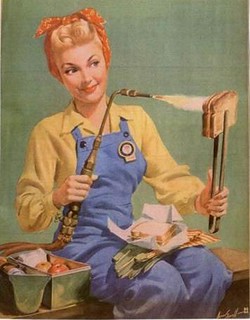
Synopsis:
Are you possessed by the urge to invent, design, and make something that others enjoy, but don’t know how to plug into the Maker movement? In this book, you’ll follow author David Lang’s headfirst dive into the Maker world and how he grew to be a successful entrepreneur. You’ll discover how to navigate this new community, and find the best resources for learning the tools and skills you need to be a dynamic maker in your own right.
Lang reveals how he became a pro maker after losing his job, and how the experience helped him start OpenROV—a DIY community and product line focused on open source undersea exploration. It all happened once he became an active member of the Maker culture. Ready to take the plunge into the next Industrial Revolution? This guide provides a clear and inspiring roadmap.
*Take an eye-opening journey from unskilled observer to engaged maker-entrepreneur
*Enter the Maker community to connect with experts and pick up new skills
*Use a template for building a maker-based entrepreneurial lifestyle
*Learn from the organizer of the first-ever Maker Startup Weekend
*Be prepared for exciting careers of the future
Review:
What I liked about the book was the author's passion about creating things, hacking things and recombining things as well as his optimism about the process. Even though I would have liked a bit more of a critical perspective, I found it catching. I was disappointed a bit by the book in its lack of detail. I would have liked more nitty-gritty info on the actual technical processes and I would have liked more info on the author's own project. It seems to me that the author simply lists a lot of resources one could go to with the default answer being to go to a "makerspace" and lots of personal anecdotes on what happened at some of these makerspaces or to go to google and youtube. I found that to be rather unsatisfactory as an answer. Also, while I understand the book is called zero-to-maker, written for make magazine, I repeatedly thought to myself "If he says "maker" one more f*ing time, ..." (cue Samuel L. Jackson in Pulp Fiction) while reading the book.
However, the book provides quite a list of resources and to some degree an evaluation of what one can use them for, often with examples. I was unaware of Quirky, for example, and many of the online resources for parts and descriptions of projects. I also liked that he gave some information on "going pro", even though it was in the style of the rest of the book.
To some degree I had the impression that he wrote a lot of things simply to fluff up the book. I learned that the book came from a kickstarter project after a personal zero-to-maker column for make:magazine in an attempt to switch gears as a suddenly unemployed economist. It seems that with this set of boundary conditions, it makes sense that a glowingly positive review of maker culture with less focus on the techical side was the result.
The book hence was a fast read and gave more motivation than information which probably is not bad by itself, but it simply was not what I expected based on the pitch in the subtitle.
I think in general the maker attitude he describes fits in nicely with the ERE rennaissance man ideal. He even criticized the buy-and-throw-away culture. I also liked how he described the process of making itself as something intrinsically satisfying and empowering and I would also subscribe to his view that one learns faster with a personally meaningful project than in a class room. Reading the book has given me more appreciation of the creativity and meaning involved in personally making things instead of buying them, something that goes beyond the mere price difference between raw materials and final product.
Also, the story of building a toaster from scratch, which I already knew, as well as the focus on the community aspect of learning and creating put the making into perspective. You are not an isolated individual creating things ex nihilo alone in your basement, but still part of a context of existing products, processes and a community to learn from and share with. I liked that part.
Rating: 6/10
Discussion questions:
1. What would you like to make, inspired by the book?
2. Since the book was too blue-eyed on this, what is your take on the amateur-kickstarter-business-model? Is it viable, overly optimistic, scammy?
3. Which of the resources he mentioned did you find interesting/useful? Do you know of others?
4. In which way does this maker-attitude fit in with an ERE lifestyle?
